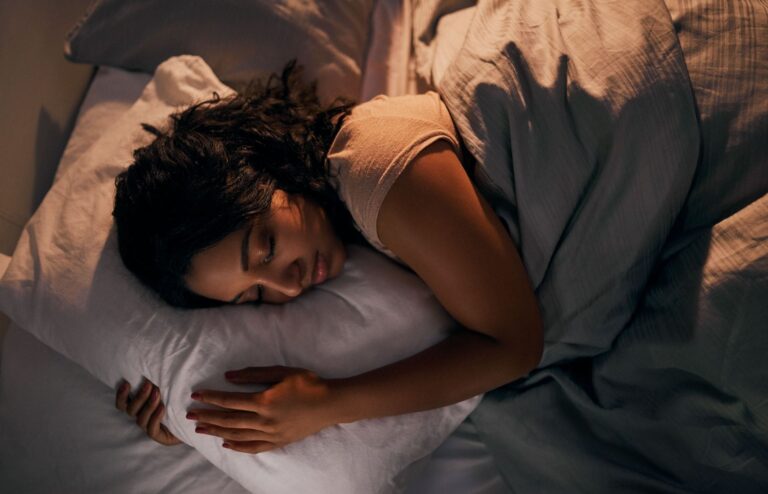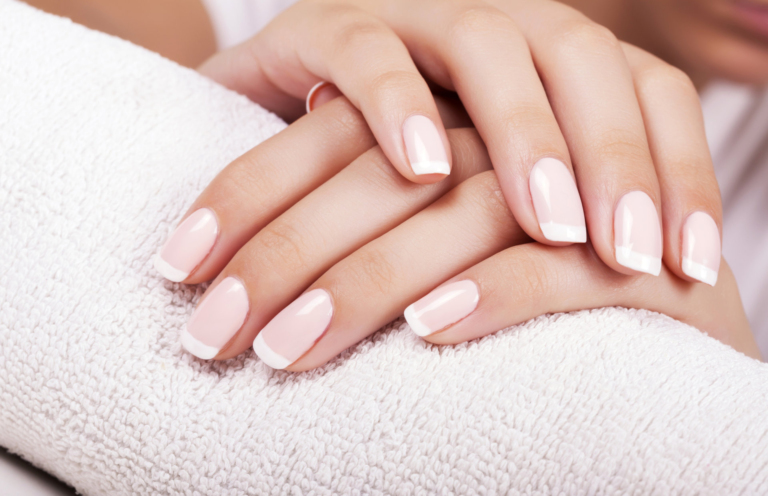Tips for hair loss after childbirth
Does your hair fall out in such a way that your brush is always full, you find hair all over your house and your drain is completely clogged when you wash your hair?
If you’ve also been postpartum for a few months, don’t let it get you down.
You’re not the only one facing this problem that literally drives you crazy.
However, the tips listed at the end of this article will also be of use to women whose hair loss was not caused by childbirth.
What causes hair loss?
Hair loss most often begins between the second and sixth month after childbirth, and it is estimated that up to 90% of women experience some form of alopecia.
The good news is that, in the vast majority of cases, this condition is temporary and should resolve itself within a year.
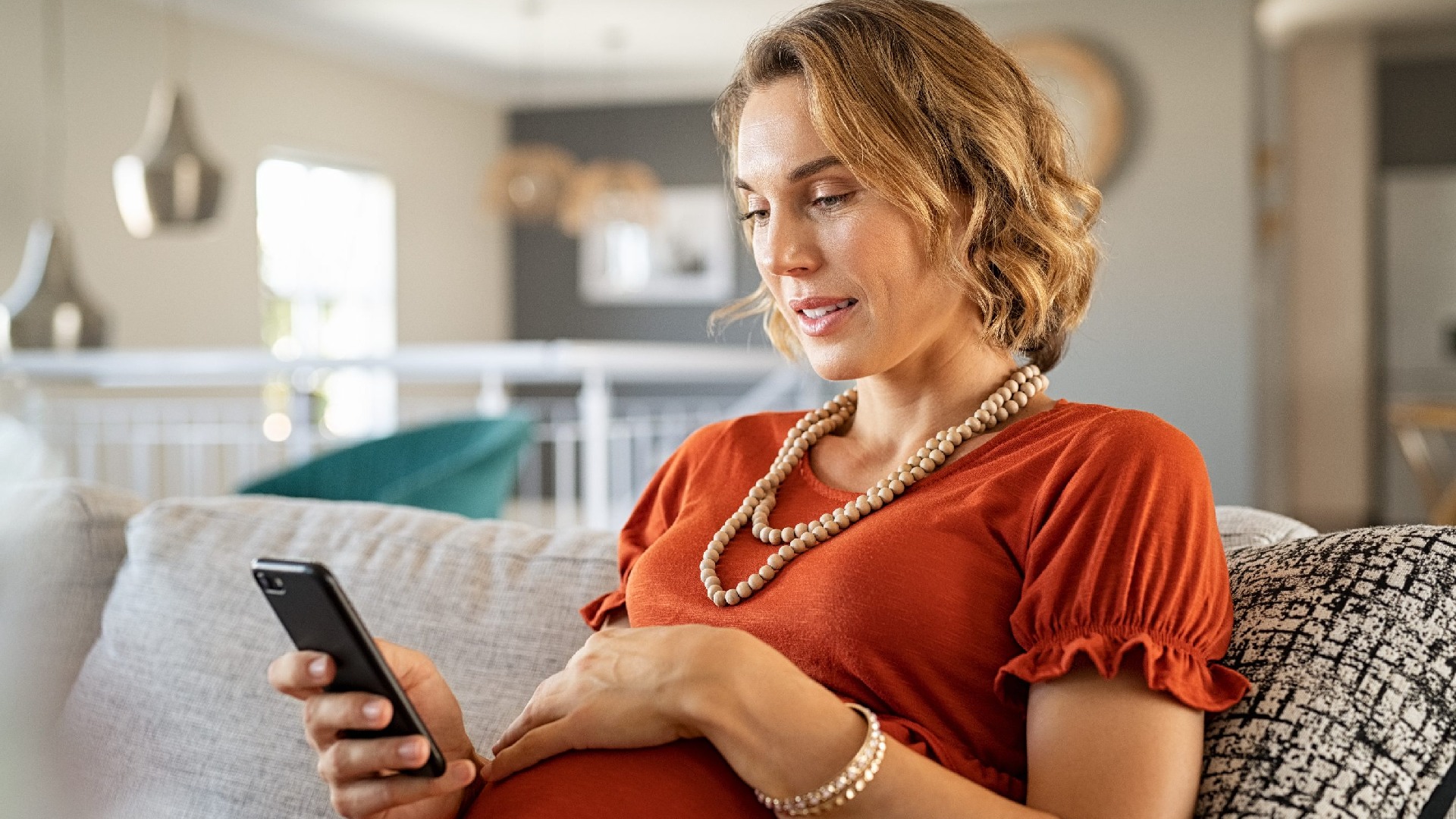
Hair loss
Indeed, during pregnancy, estrogen and progesterone levels rise, keeping hair in its growth phase for longer, so that hair doesn’t fall out and becomes thicker.
This phenomenon is similarly aided by the increased amount of blood in the body, which increases by around half during pregnancy, ensuring better blood circulation around the hair follicles, which are then better nourished.
Hair volume is reported to increase by up to 30%.
After childbirth, the level of these hormones within 24 hours and the amount of blood within a few weeks drop sharply, and the hair enters a resting phase, after which it falls out and gives way to new, finer hair growth.
Also read: how to care for your hair during pregnancy?
What makes matters worse is that you also have to cope with sleep deprivation, sudden weight loss, fatigue, increased prolactin levels associated with frequent breastfeeding, and even the stress hormone cortisol due to the baby’s inconsolable crying.
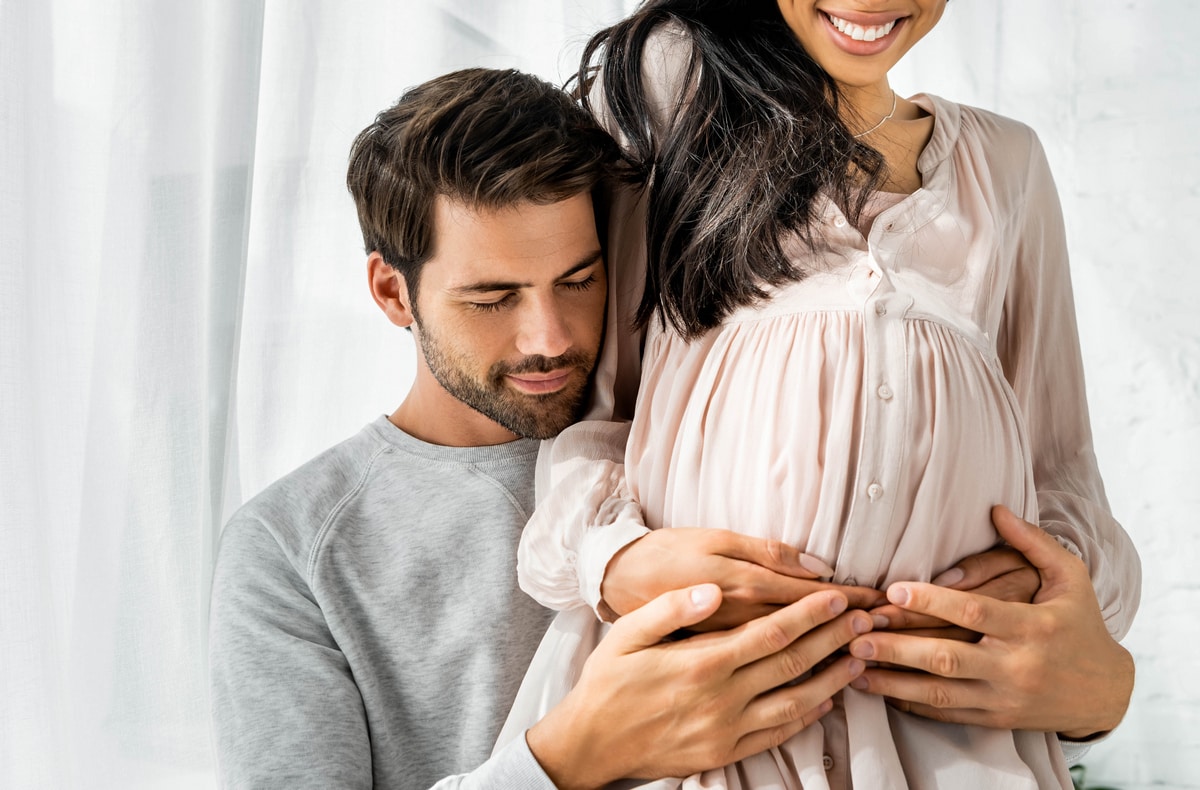
How much hair loss is acceptable?
A healthy person loses around 40 to 160 hairs a day.
For new mothers, this figure can rise to 400 hairs a day.
After approximately six months, hair loss should slow down.
In fact, the total amount of hair you lose after childbirth is probably no more than the amount of hair you didn’t lose during pregnancy.
What can you do to slow hair loss and grow new hair?
Fortunately, there are a few tips to help you and ensure that you nourish your existing hair and prepare the ground for new hair growth.
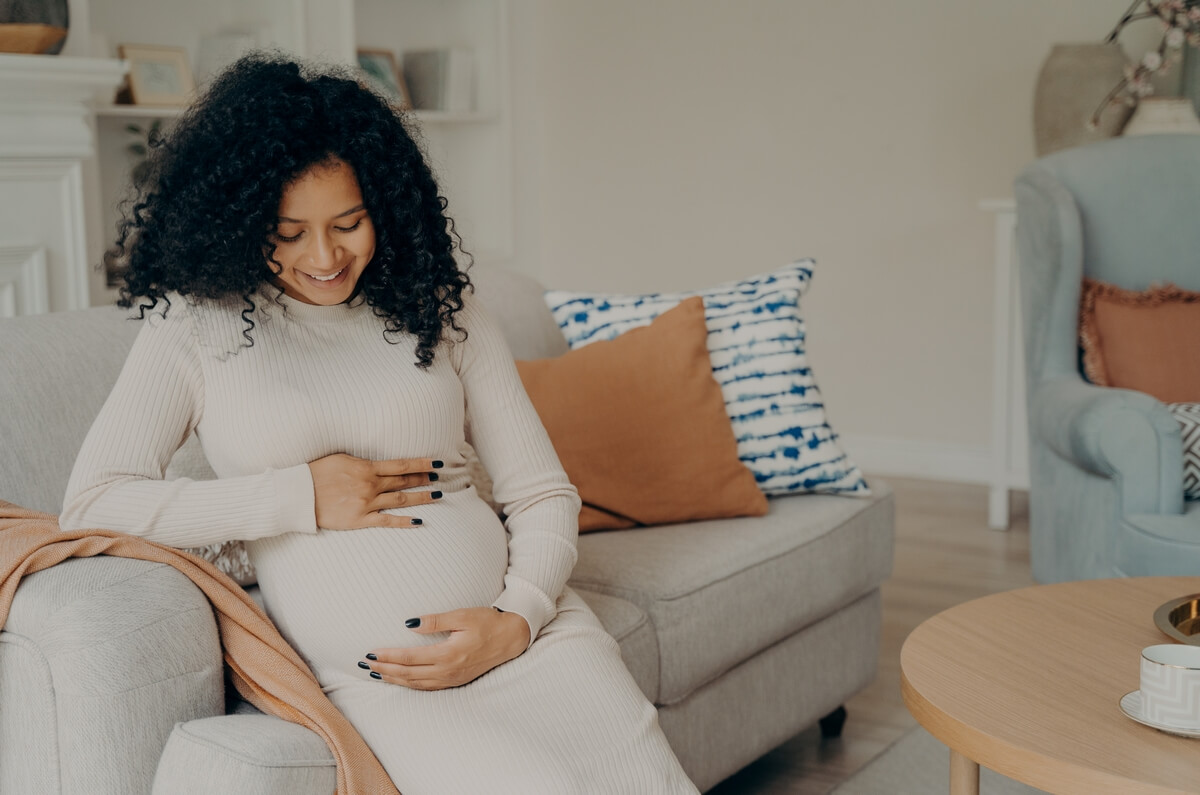
Healthy eating
It may sound like a cliché, but a diet nourishes hair and allows new hair to grow faster:
- Iron, green vegetables, red meat, soya, spinach, beet
- Protein, meat, quinoa, lentils, nuts, chickpeas
- Beta-carotene, sweet potatoes and carrots
- Zinc, pumpkin seeds, egg yolk, liver
- Vitamin D fish, eggs, dried mushrooms
- Vitamin C, antioxidants and flavonoids, fruits and vegetables
- Omega-3 fatty acids fish, dried fruit
Take vitamins
If your diet is not balanced, it is advisable to take additional vitamins.
It is advisable to continue taking the vitamins you took during pregnancy, especially if you are breast-feeding.
Reducing stress is always easier said than done
Stress settles on the hair follicles and causes the hair to enter a resting phase, weakening it.
So if you need help, ask a friend.

Wash your hair gently and according to your needs
Don’t worry that washing your hair more often will lead to more hair loss.
Hair that’s ready to fall out will fall out anyway.
Washing every two or three days is recommended.
What’s more, oily hair is heavier, and a messy scalp is absolutely undesirable for hair treatment.
Use volumizing shampoos and avoid intense conditioners, look for fine hair conditioners or leave-in conditioners.
Try a few home hair treatment recipes:
- Use white yogurt as a hair mask
- Apply coconut milk directly to skin and hair
- Gently massage your scalp with your fingers. Fingertip massage accelerates blood circulation in the skin and reduces stress.
Try a homemade massage oil:
Mix lavender oil, helps with headaches, exhaustion and skin ailments, with thyme oil, boosts immunity, helps with inflammation of the respiratory tract, rosemary oil, circulates the blood, and cedarwood oil, calms mental tension and soothes irritated skin, and massage into the scalp.
Mix egg white with olive oil and apply directly to scalp.
Don’t tire your hair out with heavy conditioning
Wear your hair as loose as possible.
Absolutely avoid tight ponytails, buns and tight bobby pins.
And don’t play with your hair.
Caution with heat: Do not use a hair dryer, flat iron or curling iron.
Hair that hasn’t fallen out will be irreparably damaged and susceptible to further breakage.
If you must use a hair dryer or flat iron, set it to the lowest possible temperature.
Read also: lice on artificial eyelash extensions
Treat your hair with care when you comb it
Comb once or twice a day at most.
Use a wide-tooth comb if your hair is curly, or invest in a special brush.
Don’t comb wet hair Wet hair is much more prone to damage than dry hair.
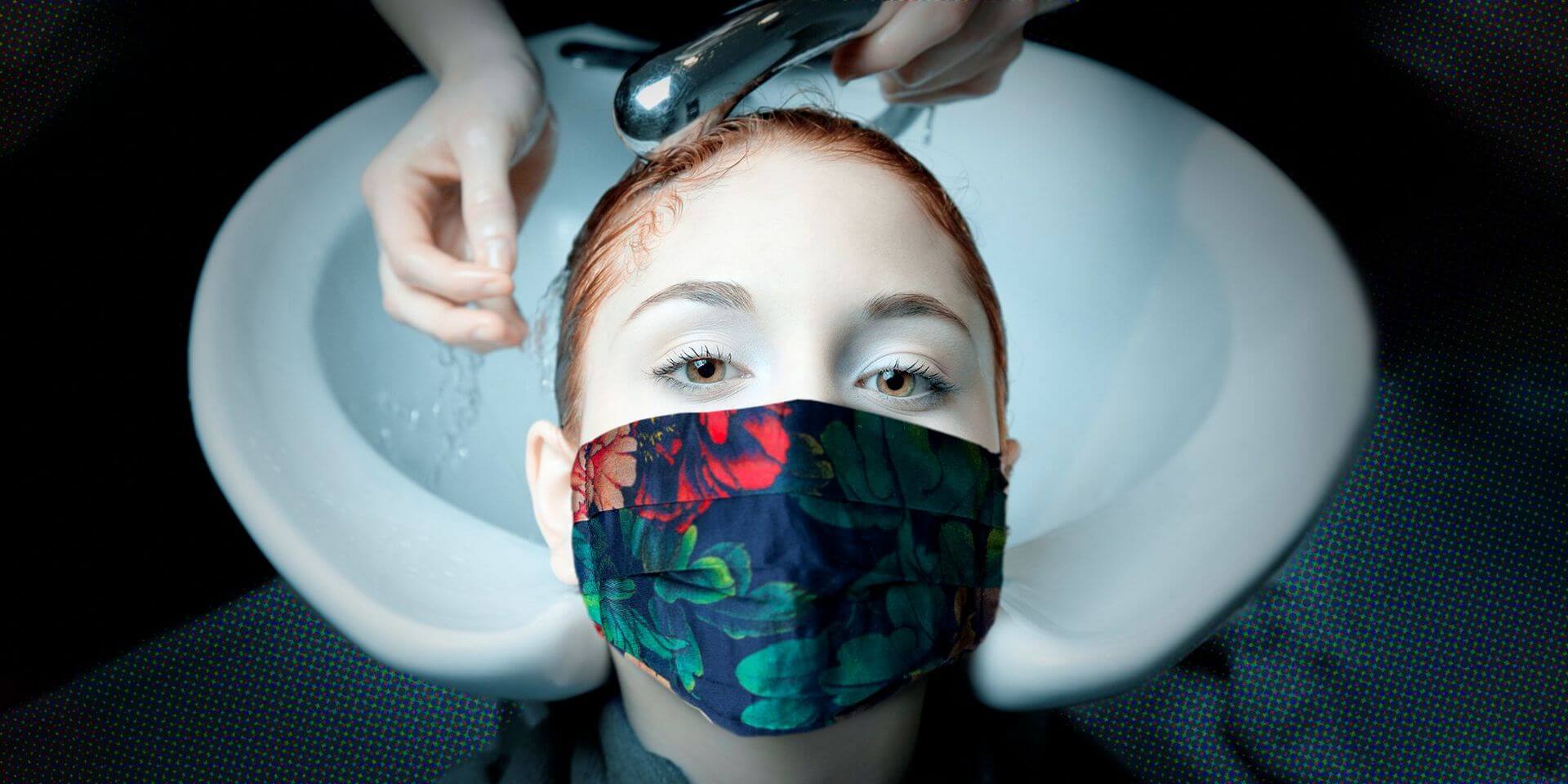
Go to the right hairdresser
A good hairdresser can help you choose a cut for fine hair.
Tell the hairdresser about your problem and ask for products that are as gentle as possible.
In general, sudden hair loss is more noticeable on long hair, so it’s advisable to cut your hair short to give it volume and air.
If the problem persists after a year, consult your doctor and ask him or her to run blood tests for iron or have your thyroid checked.
Another option is to consult a recognized dermatologist or trichologist to consider laser treatment, medication or injection of vitamins or plasma from your blood directly into your scalp.
“One of my biggest dreams is that my company will be able to change the course of one family’s life, one child at a time by giving back to the community.”


